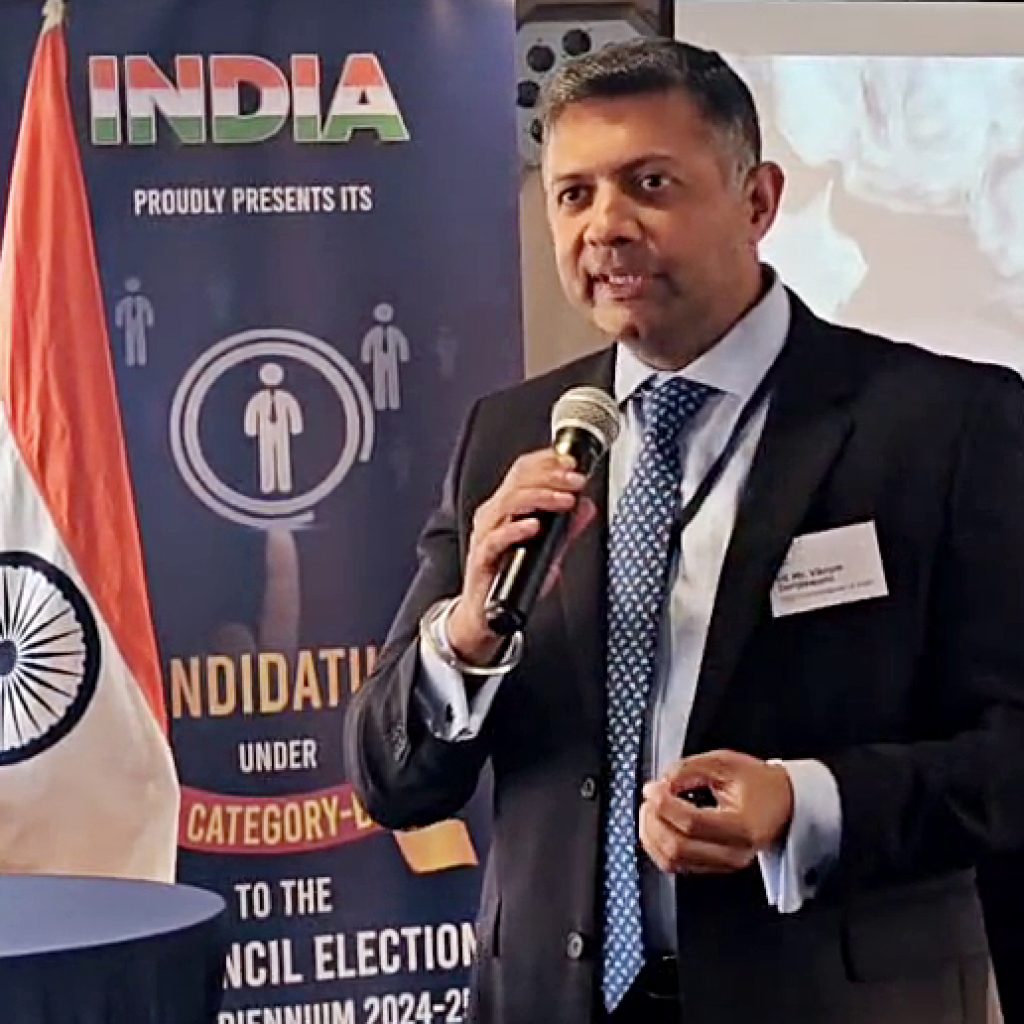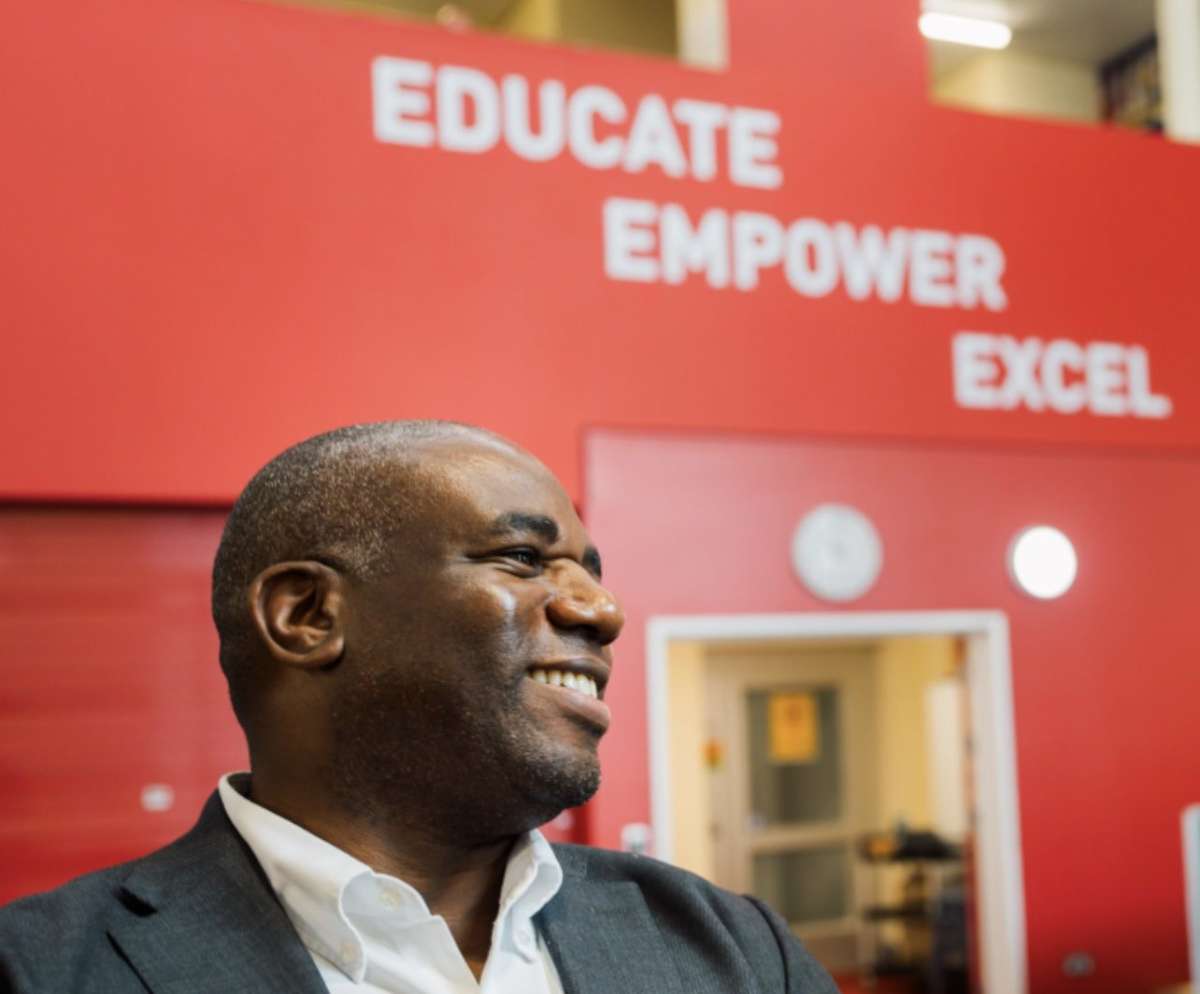India and the UK have completed 13 rounds of FTA negotiations to enhance the estimated GBP 38.1 billion a year trading relationship…reports Asian Lite News
The Labour Party criticised the governing Conservatives led by Prime Minister Rishi Sunak of having “over-promised and under-delivered” on relations with India and declared that it is “ready to go” on striking a free trade agreement (FTA) if it wins the July 4 general election.
Addressing the India Global Forum (IGF) in the final full week of the election campaign, the party’s shadow foreign secretary David Lammy laid out his ambitions of the FTA being “a floor not a ceiling” of the partnership he aspires to with his “friend” External Affairs Minister S Jaishankar.
India and the UK have completed 13 rounds of FTA negotiations to enhance the estimated GBP 38.1 billion a year trading relationship, with talks currently stalled amid the election cycles in both countries.
“Many Diwalis have come and gone without a trade deal and too many businesses have been left waiting,” said Lammy, referring to the missed Diwali 2022 deadline set by former prime minister Boris Johnson for the FTA.
“My message to Finance Minister Nirmala Sitharaman and Trade Minister Piyush Goyal is that Labour is ready to go. Let’s finally get our free trade deal done and move on,” he said, adding he will be in Delhi before the end of July if elected to government on July 4. Lammy said the Conservatives have “over-promised and under-delivered” on the UK’s relations with India.
Describing India as a “priority” for the party and an economic, technological and cultural “superpower”, Lammy sought to set the tone for his future tenure in a Labour-led Cabinet – hopeful of taking charge as the country’s foreign secretary.
“With Labour, the days of Boris Johnson reciting that old verse from Rudyard Kipling in Asia are over. If I recite a poem in India, it will be Tagore because with a superpower like India, the areas of cooperation and the areas for learning are limitless,” he said.
From a wider foreign policy perspective, Lammy stressed a “free and open Indo-Pacific” working in partnership with India.
“We stand for a rules-based order and against those who wish to redraw borders by force with a new form of imperialism, like [Russian President] Mr Putin in Europe; and those in Asia who wish to impose their will on their neighbours denying them free choices,” he said.“Europe and Asia are not two separate worlds.
In this challenging environment, Britain will remain and seek to ramp up the security partnership with India from military to maritime security, from cyber to critical and emerging technologies, from defence and industrial cooperation to supply chain security,” Lammy added.
With Labour far ahead of the incumbent Tories in all pre-election opinion polls, Lammy also drew parallels with the shared democratic values in both countries as he congratulated Prime Minister Narendra Modi on his re-election.
“I deeply believe that India’s democratic elections, with almost a billion voters, are the most important statement, the most important validation, not only of the democratic ideal but of democratic practice in today’s world. This is something that binds us together,” Lammy said.
Flagging climate change as one of the key areas of collaboration, the frontline Labour politician said the UK stood in solidarity with India through the extreme temperatures across the country.
“There can be no energy transition without an Indian energy transition. India is the indispensable partner, not only to Britain but the whole developed world,” he noted.
He also hailed the “extraordinary contribution” of British Indians, not only the largest diaspora community in the UK but “without whom it would be hard to even imagine modern Britain”.
Guyanese-heritage Lammy concluded by highlighting his own personal India connect, saying his “great-grandmother was an Indian from Calcutta who set sail as an indentured labourer to the Caribbean”.
“India contributes so much to British prosperity already. Last year, India was our second-largest foreign direct investment contributor but it could be so, so much more as India is only our twelfth-largest trade partner,” he said.

Visas not first priority for India in FTA, says Doraiswami
A request for more visas for Indian citizens, often described in the British press as one of the central challenges to concluding an India-UK ‘free trade’ agreement (FTA), was not the top priority for the government, Indian High Commissioner to the UK Vikram Doraiswami has said.
“Visas are not the first priority for us in an FTA,” Doraiswami said. He was speaking at the first session of the India Global Forum on Monday in London. The forum, an annual event that brings together Indian and British policy makers, industrialists and others, is organised by Manoj Ladwa, a corporate lawyer-turned-government affairs adviser and close associate of Prime Minister Narendra Modi.
India and the UK have been negotiating a trade agreement since 2022, with the 14th round completed before the Indian elections kicked off in April this year. India has been seeking greater ease of movement for highly skilled professionals (such as those in the IT and healthcare fields) to come to the UK to deliver services. It has also sought a reduction in tariffs on a number of goods. The UK has wanted greater access to the Indian services sector and a cut in duties on various goods, including whiskey and cars.
“We are not seeking to be essentially looking at the FTA as a means to bring people in the UK,” Doraiswami said.
India was looking for a reasonable level of movement of natural persons to deliver services in the territory of the trade partner (the UK in this case) under Mode 4 of GATS (General Agreement on Trade in Services), he said.
Doraiswami specifically referred to intra-company transfers, saying there were over 970 subsidiaries of Indian companies in the UK and that firms would want an easier movement of employees across borders.
Regarding student visas, Doraiswami said it was up to the British electorate to decide on questions such as the post-study work visa in the UK. The programme was recently questioned by Prime Minister Rishi Sunak’s Conservative government on the grounds that the visas were being abused as a door to migration to the UK. The government’s independent adviser, however, had declared that the system was not being abused. Several of Sunak’s Cabinet colleagues also opposed restricting the system. Sunak consequently backed away from plans to restrict the visa.
“We’re not asking necessarily that you must make this [post-study visas] a critical part of the FTA,” Doraiswami said as he suggested that Indian students would judge the attractiveness of the UK as an educational destination relative to, for instance, the US, Canada or Australia where they had opportunities to work after their degree.
Asked about greater India-UK cooperation across other dimensions, such as the security partnership, Doraiswami said that the two countries were looking to work together more on security policy but also the “hard edge of security itself “, for instance, military-to-military cooperation and co-development and co-production of technology. This would entail achieving a certain level of interoperability between the Indian and UK militaries, he said.
ALSO READ: Sunak to act on gambling probe findings

Leave a Reply